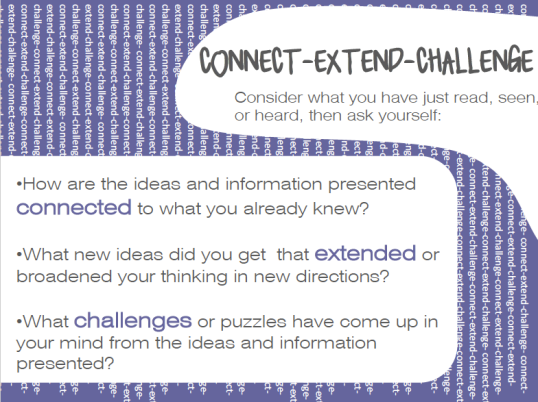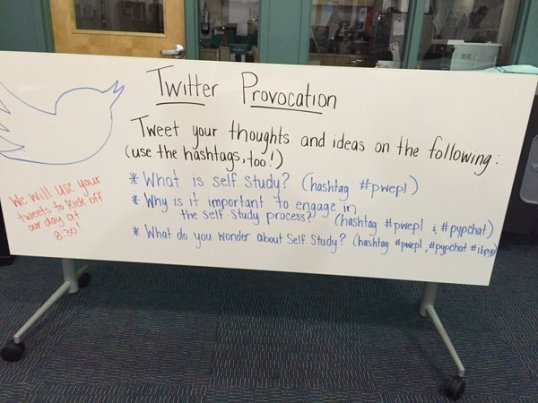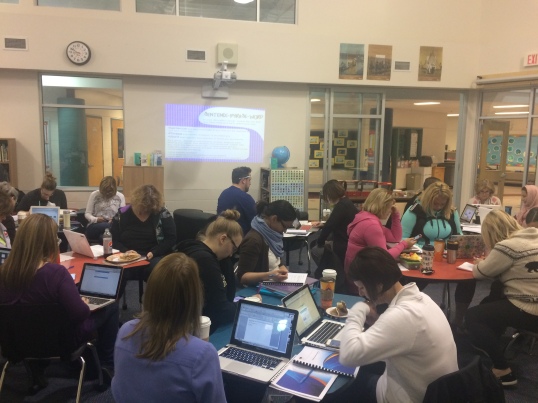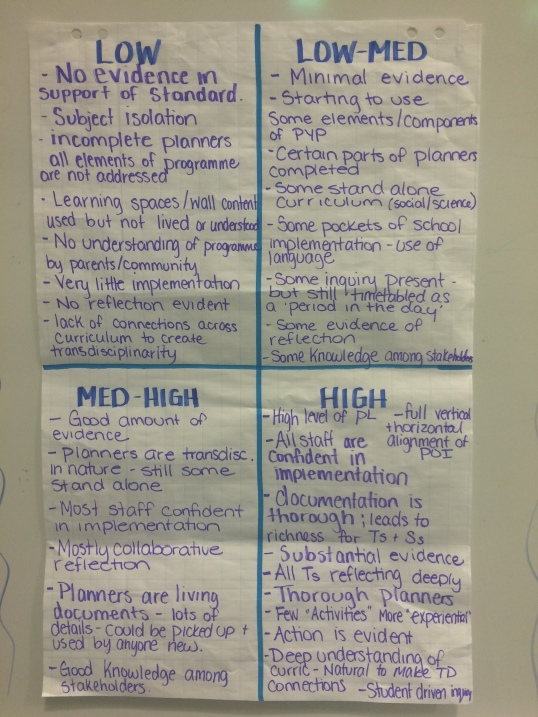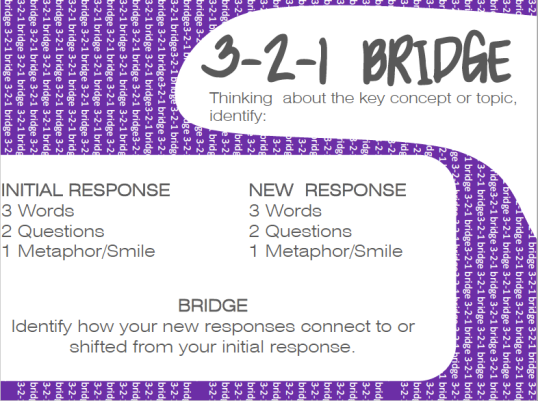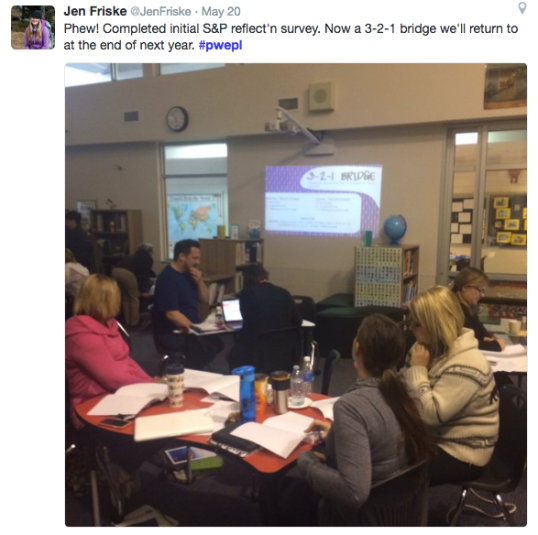The Results Are In!
After a period of time to review the submissions of our gamified POI review, looking for conceptual balance and alignment. We have a winner!
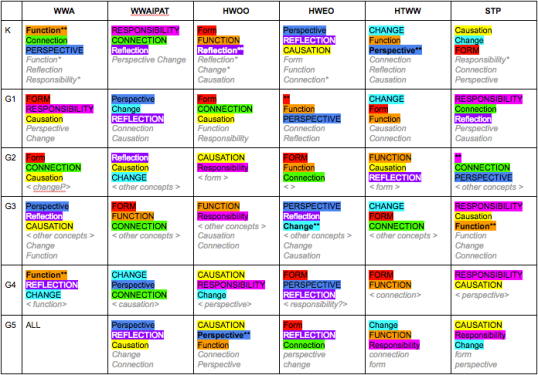
With just 9 modifications (a few removals and several additions/changes), our POI is more balanced, and staff were able to engage in incredibly thoughtful and in-depth conversations about the vertical and horizontal articulation of our Programme of Inquiry. It was a very successful way to engage with our POI. Looking at it from one particular lens helped us consider the constructivism of our units in a way that we hadn’t really given a lot of sustained time to in the past. The highlighted concepts within each unit are the concepts that will be focused on moving forward into next year’s unit planning. We decided to keep the grey (alternative options) concepts in the matrix as a reminder to teams that there are other key concepts that could also work, if, in the future the direction of a unit shifts as teams evolve and develop a better understanding of how to approach curricular connections to the Units of Inquiry.
One interesting note to reflect on, we had a lot of whole-group conversation around the idea of the word “Balance”. When Balancing the POI, Some teams took that to look more like “Equality” of representation of the concepts across units and grades, while others felt it was more of a loose term with regard to what logically made sense for grade-specific scope and sequence content. We butted up against the struggle of “equality” in that it began to feel like a force-fit of concepts just to ensure that there was equal representation of the concepts. Fitting a square peg into a round hole, as it were. But then, how does that compromise the big ideas of the units? Looking back, we should have come up with a universal agreement and definition of what “Balance” looks like for our school POI before we began – but the conversation in and of itself was a good chance to talk through the varying ideas of what it meant, and we are now more on the same page moving forward.
Regardless of who the winning team was, it was an exercise of patience, critical thinking, perseverance, collaboration, team-work, communication, open-mindedness, flexibility, evaluation, comprehension, and cooperation among many other things. Isn’t that the beauty of the Essential Elements of the PYP? That no matter what age we are, the experiences we engage with help us develop every facet of the human experience: the knowledge we acquire, our level of conceptual understanding, our attitudes, our skills and ultimately, our actions which lead to continuous improvement.
This POI review was a wonderful example of all of those elements in action in order to ultimately build upon and improve the student experience at Prairie Waters for the 2017-2018 school year.



